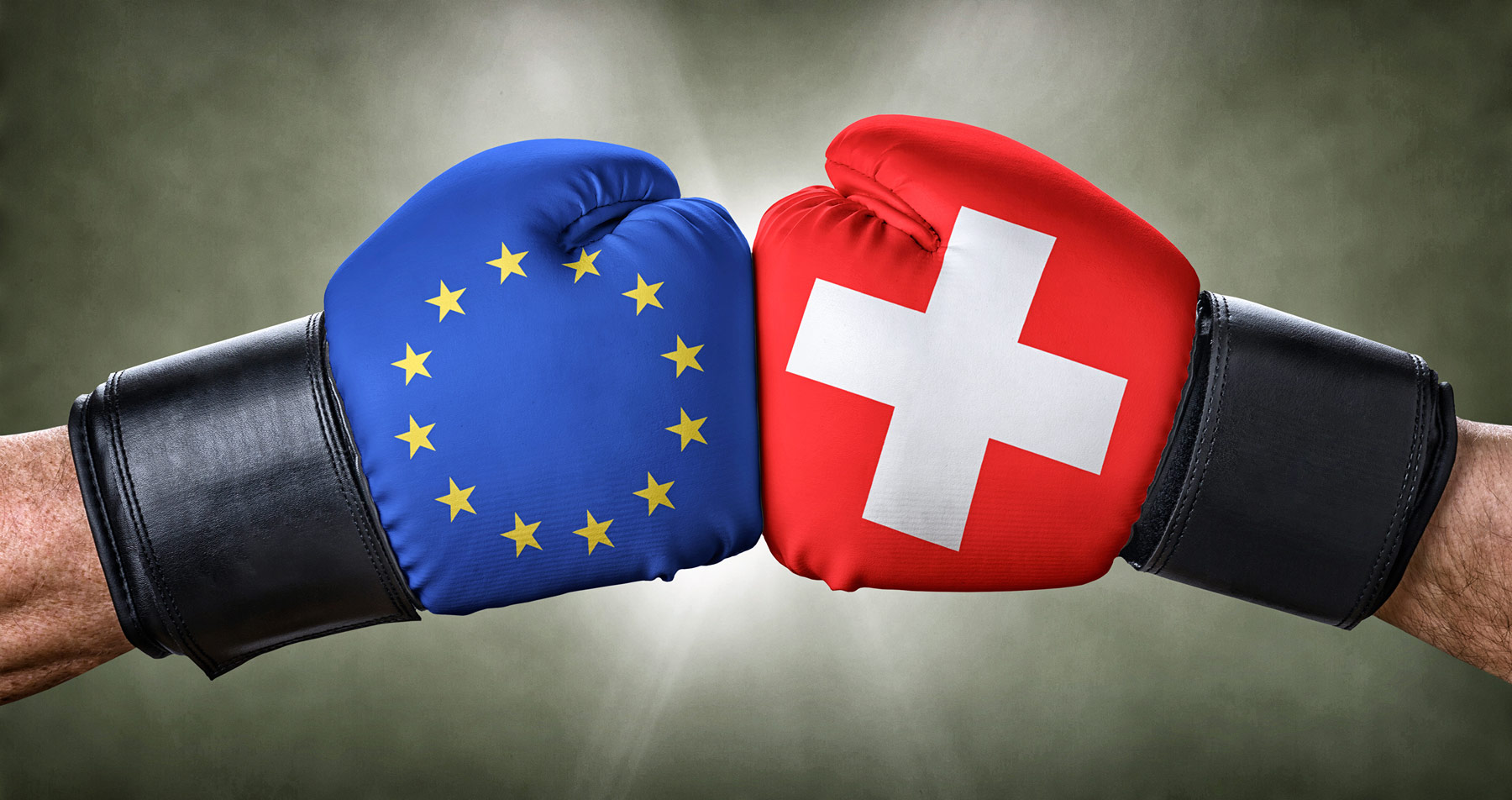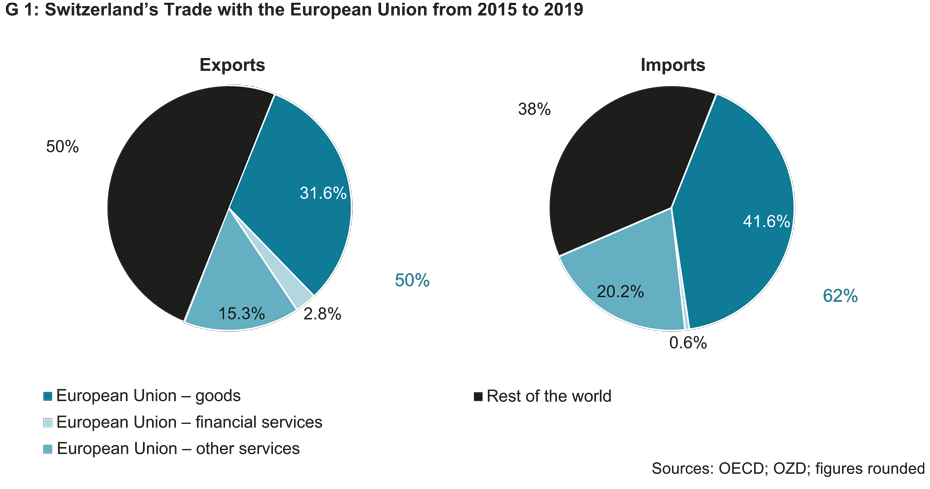"Switzerland thrives on having open borders"
KOF Bulletin
KOF Director Jan-Egbert Sturm explains in an interview why, from an economic perspective, the conclusion of a framework agreement between Switzerland and the EU would have been desirable and what economic risks now loom after the failure of the agreement.

Mr Sturm, from a purely economic point of view, how do you assess the failure of the framework agreement between Switzerland and the European Union?
The European Union is by far the most important trading partner for Switzerland. Approximately half of Swiss exports go to the EU, and more than 60 per cent of our imports come from the EU (see G 1). From a purely economic perspective, open borders and good relations with trading partners are important, especially for a country as small and export-dependent as Switzerland. Switzerland thrives on having open borders. So, in purely economic terms, it would have been desirable if Switzerland and the EU had replaced the current bilateral agreements with a framework agreement. But the world is not governed from a purely economic perspective: political and social factors also play an important role in the debate.

Can you understand the arguments put forward by those who oppose the framework agreement?
Yes, of course. Switzerland is in a very good economic position. This creates the impression that it is better to go one's own way and not to integrate too much into the EU. Moreover, many Swiss are concerned that Switzerland, as a direct democracy, will lose its sovereignty if it integrates too strongly into the EU. There is certainly also a hint of national pride involved. In addition, Swiss border regions in particular fear wage dumping and social upheaval if Switzerland opens up too much to foreign countries. All these arguments must be taken seriously and cannot be completely dismissed.
Is it right for many neighbouring countries to accuse Switzerland of shutting itself off?
Switzerland is not part of the EU and thus has a special status within Europe. Consequently, Swiss trade barriers are stronger than those within the EU member states. Politically, this isolation is quite deliberate. But we have to discuss how far this isolation should go. From a purely economic point of view, less partitioning would be desirable. Switzerland’s economy and, thus, its society benefit from smooth access to the European single market.
What is the alternative after the failure of the framework agreement?
That is the million-dollar question because working out an alternative will again take a lot of time. And the world continues to evolve in terms of both markets and technologies. In this respect, standing still represents a step backwards. Of course we can look to the UK and Norway for guidance. But even if a blueprint is available to us, we will remain stuck in the status quo for some time until we achieve a new negotiated solution.
Is Switzerland now falling behind economically after the failure of the framework agreement?
Yes, without some kind of framework agreement it will become increasingly difficult for the Swiss economy to remain competitive. Many sectors – such as the pharmaceutical industry, the energy sector and science – will come under growing pressure without a framework agreement.
Would it be feasible to sign only parts of the framework agreement and exclude other controversial bits – according to the principle of ‘a bird in the hand is worth two in the bush’ – or is it really a question of ‘all or nothing’?
From a European perspective it is an all-or-nothing decision. I do not believe that the European Union would agree to any partial solutions. At most, it might have been possible to define the ‘all’ more favourably from Switzerland’s point of view through renegotiations.
How do you now see Switzerland’s negotiating position vis-à-vis the EU?
I am not a politician, but I can make an assessment from a political economy perspective. I believe that Switzerland has underestimated its room for manoeuvre within a framework agreement. The way in which EU member states deal with European rules varies. This quickly becomes clear when you look at countries like Poland and Hungary. Switzerland is certainly closer to the European idea and would therefore have been in a position to exploit its leeway within a framework agreement. Switzerland has missed this opportunity for the time being.
The EU-Switzerland framework agreement
The EU-Switzerland framework agreement, also known as the Institutional Agreement, is a set of arrangements designed to regulate the framework conditions for cooperation between the European Union and Switzerland in the future. However, Switzerland broke off these negotiations in May 2021. Switzerland’s relations with the European Union are currently governed by a network of bilateral treaties. These treaties between the EU and Switzerland will nevertheless remain in force after the failure of the framework agreement. However, the European Union has warned of the consequences that Switzerland must expect to face if no framework agreement is signed: there will be no further agreements, and older agreements may not be updated.
Contacts
Director of KOF Swiss Economic Institute
Professur f. Wirtschaftsforschung
Leonhardstrasse 21
8092
Zürich
Switzerland